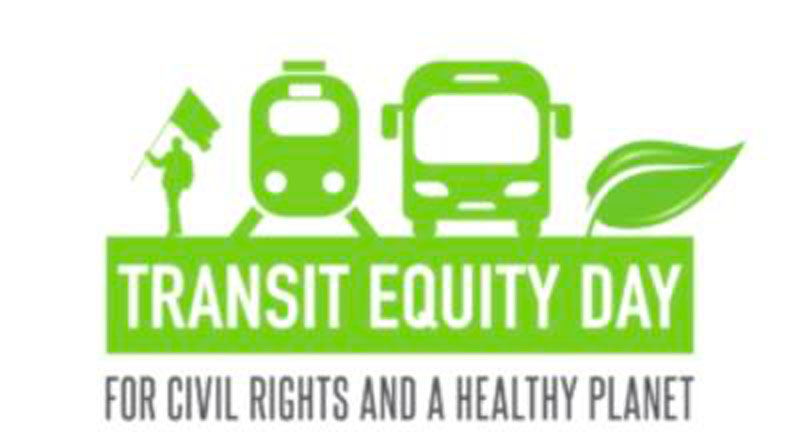On Feb. 4, transit activists will draw attention to the importance of affordable and accessible bus service in actions across the country.
The date honors Rosa Parks on her birthday, a nod to her refusal to give up her seat on the bus in 1955, which was a catalyst for the civil rights movement. It affirmed that everyone should have an equal right to use public transit. Transit equity isn’t just about where you sit on the bus. It’s about whether you can get on a bus at all.
Locally, transit activists, including Sierra Club Redwood Chapter Transportation Chair Steve Birdlebough, plan to ask council members and county supervisors to ride the bus to a meeting at least once a month during 2019.
"They need to learn how well transit actually works, and as occasional riders they might come up with some ideas to improve it," said Birdlebough.
The full story: nearly two-thirds of a century ago, an African American seamstress and activist named Rosa Parks broke the law by refusing to give up her seat to a white rider on an bus in the segregated South. She was arrested and locked up in the Montgomery, Alabama jail.
In response, the black community of Montgomery boycotted the city’s buses until they could ride with dignity. The boycott lasted 381 days, until the United States Supreme Court ruled that such discrimination was unconstitutional.
The annual Rosa Parks Day commemorates that victory.
One of the organizers of the Montgomery bus boycott, the Rev. Martin Luther King, Jr., became America’s best-known spokesperson for civil rights. He helped Americans understand that civil rights included not only the rights to vote and sit up front on the bus, but the right to a decent home, the right to a good job, the right to join a union, and other rights necessary for equal access to a good life.
King recognized that equal access to transportation was one of those essential rights. He expanded the focus of transit rights from the right to ride anywhere in a bus to the right to ride to anywhere you need to go on a bus. We are similarly expanding what’s included in transit justice:
Fifteen years after the integration of Montgomery’s buses, he pointed out in A Testament of Hope that many Americans faced discrimination not because they couldn’t get a good seat on a bus, but because they couldn’t get a bus at all.
“The layout of rapid-transit systems,” he pointed out, “determines the accessibility of jobs.” Poorer people needed access to those jobs so they could begin to “move into the mainstream of American life” — which meant they needed transit.
Unfortunately, transit systems did not provide that accessibility. So, King concluded, “urban transit systems” have become “a genuine civil rights issue.”
Since then our urban transit systems have grown far worse. Skimpy budgets and auto-oriented city plans have led to inconvenient bus schedules and fares that are challenging for poor people. Bus routes are designed less to provide a public service than to stretch the funding provided by state and federal policymakers.
Many of our communities are transit deserts, where residents and workers have to spend hours walking and taking circuitous routes simply to get to their jobs, see their families, buy groceries, or get to a medical appointment. According to U.S. Census data, nearly half of American households don’t have access to any public transportation.
Providing convenient alternatives to driving is a critical factor in addressing climate change that threatens the lives and futures of all people. As a U.S. federal court recently declared, all people have a right to a stable climate.
That will require a rapid cut in the burning of the fossil fuels that emit the greenhouse gases (GHGs) that cause climate change. And one of the easiest, fastest, and cheapest ways to do that is public transit run on clean, renewable energy.
Moreover, cars, trucks, and other vehicles emit a large proportion of our dangerous pollution, causing asthma and many other life-threatening conditions. We argue that providing convenient and affordable transit as an alternative to the automobile is far healthier for individuals and communities.
Transit justice, in short, is essential for building a just and climate-safe future.
In honor of Rosa Parks Day, a group of organizations — including the Labor Network for Sustainability, Jobs with Justice, Sierra Club and the Institute for Policy Studies — are declaring a Transit Equity Day on February 4th to take action for civil rights and a climate safe future.
We think every person in every neighborhood regardless of age, race, class, gender, or disability should have the right to safe, convenient transportation at an affordable cost.
